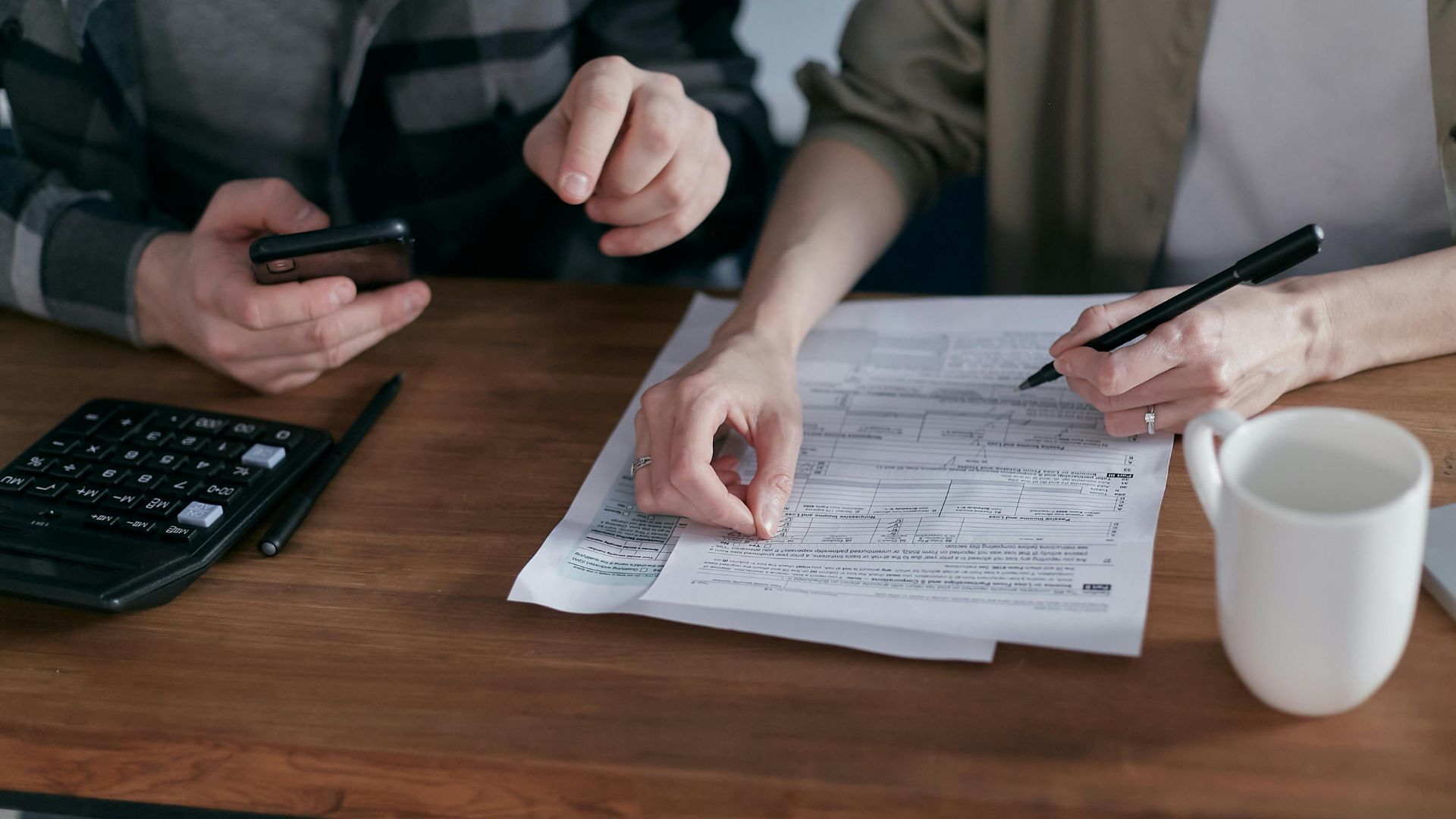He explained that due to the “steady erosion of people’s financial resilience” due to the cost of living crisis and Covid-19, increasingly people coming to StepChange are in a “negative budget”, which is where their income isn’t enough to meet their essential needs.
“At the moment, roughly one in three people who come to us are in what we term a ‘negative budget’, which is obviously hugely concerning and points to the long-term damage the last five years has created for a large number of people,” he said.
Trevethick said while credit cards remain the most common debt type people come to StepChange with, “people are struggling more with energy debt, council tax debt and mortgage debt”. Additionally, more are struggling with “problem debt”, which is where a person can no longer keep up with their debt repayments and it becomes unmanageable.
“It is an incredibly difficult time for millions and millions of people,” he said.
Where should I turn to for help with debt?
There are many charities and organisations you can turn to if you’re struggling with debt – StepChange, National Debtline, PayPlan, Citizens Advice and Debt Advice Foundation are just some of the organisations you can approach – and experts say the sooner you reach out for help, the better.
A debt advisor from any of the organisations above can help you access support for managing debt, like the government’s Breathing Space scheme, which gives temporary protection from creditors while you get advice and make a plan.
Advertising helps fund Big Issue’s mission to end poverty
They can also create a budget and plan to help manage your debt, or advise you as to whether you might be eligible for a Debt Relief Order, or whether you should declare bankruptcy.
What do I do first?
Trevethick explained that when a person comes to StepChange for help, there are a number of first steps to take.
“The first thing we would do is take a forensic look at their finances,” he explained, adding that the charity examines everything “they’ve got going in and what they’ve got coming out” from bills, to food, to what they spend on birthday presents for loved ones.
“We literally take every single possible line of expenditure, and we work out from there what people can reasonably pay back towards the debts that they owe… We would then be able to go to their lenders and broker an agreement where we would recommend an amount they are sustainably able to pay, and that would then go towards paying off their debts over a set period of time.”
He explained that for those in a “negative budget”, maximising income to avoid debt is crucial.
“One of the things we would always recommend people do is make sure they are getting all of the benefits that they’re entitled to. We know that billions go unclaimed in means-tested benefits every year. Our benefits checker identified more than £9m of additional monthly income for clients last year alone,” he explained, adding that grants or hardship funds may also be available.
Advertising helps fund Big Issue’s mission to end poverty
“A lot of utilities providers or local councils will offer support schemes and trusts that will write off your debt if you kind of reach a certain criteria,” he said.
Which debts should I prioritise?
Debts are sorted into two categories, “priority debts” and “non-priority debts”. Citizens Advice explains that priority debts “can cause you particularly serious problems if you don’t do anything about them”. These debts include rent or mortgage arrears, court fines, council tax arrears, unpaid child maintenance and more.
Non-priority debts cause less serious problems than priority debts, and could include unpaid water bills, unpaid parking tickets, or money you owe to family and friends.
Anna Hall, corporate director of debt at the Money and Pensions Service, said: “If you’re struggling and falling behind, [prioritising debt] is exactly what a debt adviser can help with – particularly as the consequences of falling behind on some debts can vary depending on who you owe money to.
“A debt adviser will also look at your incomings and outgoings, the debts you’re paying the most for, and help you work towards finding a solution that’s right for you.”
Talking with creditors
Experts explain that if you are managing multiple debts or falling behind on payments, it may be a good idea to get in touch with the people you owe money to.
Advertising helps fund Big Issue’s mission to end poverty
“They do have a legal duty to help you, and they will work with you to find a more sustainable way for you to pay back the money you owe,” Trevethick explained.
“A lot of people think if they go to their lenders they’ll be told they need to pay back the whole lump sum at once, or that they’re going to be in trouble, but it’s far from the truth.”
Grace Brownfield, head of influencing and communications at National Debtline, added: “People are often surprised by the support their creditors can offer, and many, like banks or utility providers, are required to look at how to help you if you’re facing financial difficulty. This might include offering you a more affordable payment plan, or a payment break while you get advice.
“The best thing to do is contact your creditors and explain your situation. Remember to let them know about any wider circumstances that are impacting your ability to pay, like any health conditions or life events. Let them know if you’ve had debt advice, and share a copy of your budget with them, to show what you can afford to pay, if anything.
“You can use National Debtline’s My Money Steps to put together a budget and get advice online, and our website has template letters and emails you can use to get in touch with your creditors and explain your situation.”
The government-run website Money Helper has plenty of advice about how to talk to your creditors about debt, from knowing where to start, to the options they might offer you.
Advertising helps fund Big Issue’s mission to end poverty
How can I avoid debt in the future?
Experts say there are a number of steps people can take in order to avoid debt in the future, from claiming all of the benefits they’re entitled to, to boosting their savings.
“We do see time and time again that people aren’t taking advantage of all of the help available to them, particularly those people on lower incomes,” Trevethick said, explaining that schemes exist to help those on low incomes bolster their savings.
“The Help to Save scheme is a useful way for those on lower incomes to boost their savings as the government will provide 50p for every £1 saved, up to £50 a month,” he said.
Experian also shared several tips on how to avoid accumulating debt in the future, such as building an emergency fund, paying your credit card in full each month, using caution with “buy now, pay later” plans, and creating a budget.
Most importantly, experts underline the importance of not suffering with debt problems alone.
Hall said: “The first step to seeking debt advice is always the hardest, but it can make a massive difference. The most important thing is to seek help early, and don’t be afraid to do so.
Advertising helps fund Big Issue’s mission to end poverty
“Debt advisers are there to help you and will suggest ways of dealing with your debts that you might not know about. They’ll also help to prioritise if you have multiple debts.
“You don’t have to tackle debt alone – there are organisations to help, please reach out for support.”
Do you have a story to tell or opinions to share about this? Get in touch and tell us more. Big Issue exists to give homeless and marginalised people the opportunity to earn an income. To support our work buy a copy of the magazine or get the app from the App Store or Google Play.






